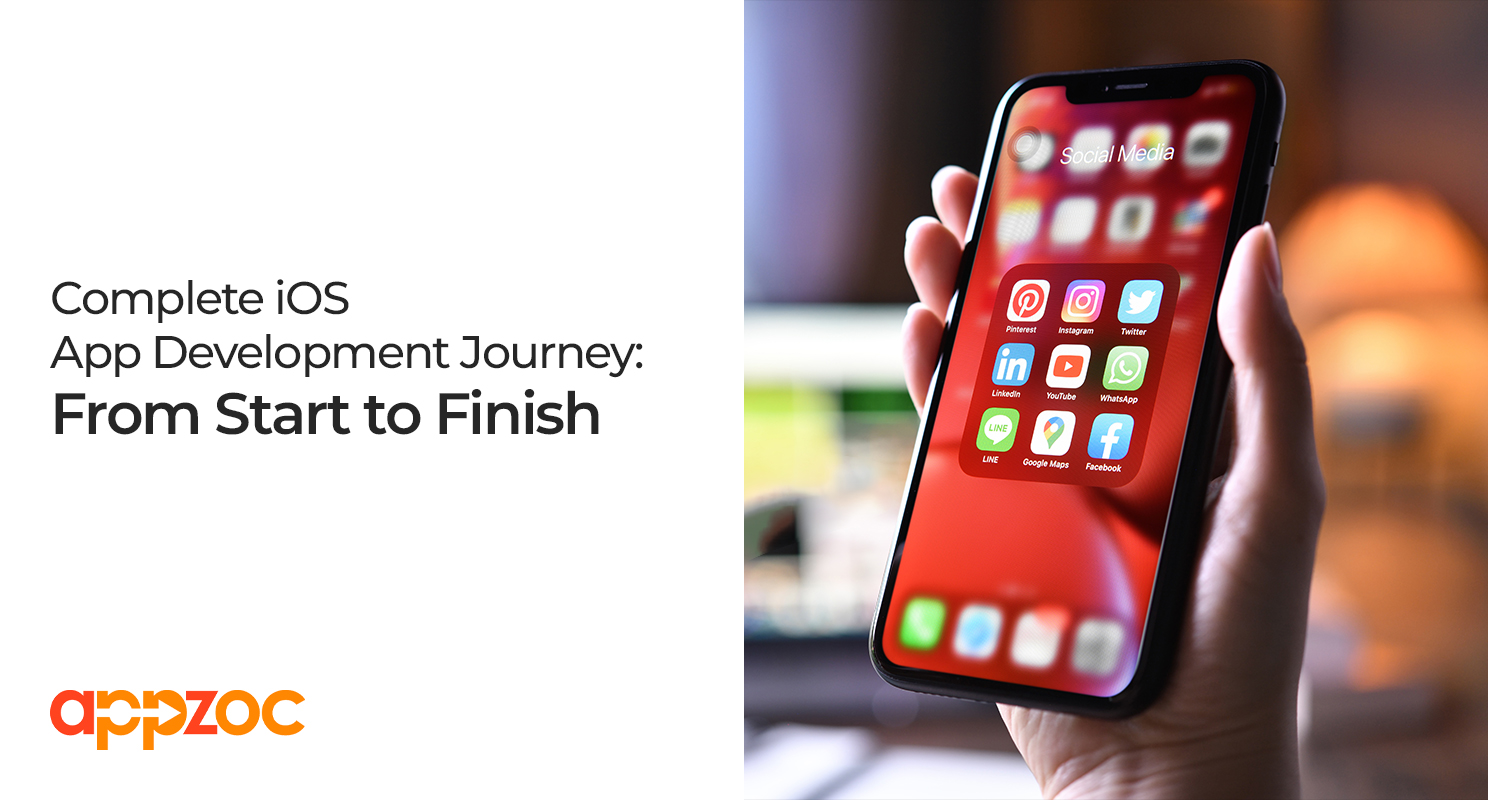Embarking on the journey of iOS app development is a thrilling endeavor that promises innovation, creativity, and the potential to reach millions of users worldwide. Whether you’re a budding developer or a business owner looking to bring your ideas to the Apple ecosystem, understanding the comprehensive process from inception to launch is key. In this detailed guide, we’ll navigate through the complete iOS app development journey, exploring crucial steps, best practices, and highlighting the importance of professional expertise. Additionally, we’ll delve into the dynamic landscape of iOS app development in specific regions, such as Kerala and Bangalore.
1.Conceptualizing Your iOS App Idea: Laying the Foundation
The journey begins with a spark of inspiration – an idea for an iOS app that addresses a specific need or provides a unique solution. Before diving into the technicalities, it’s essential to outline the app’s purpose, target audience, and unique selling points.
Market Research and Analysis:
- Conduct thorough market research to understand the competitive landscape, identify potential users, and pinpoint gaps that your app can fill. Analyze successful apps in similar categories and learn from both their strengths and weaknesses.
Defining App Features and Functionality:
- Clearly define the features and functionality your app will offer. Create a list of must-have and desirable features, keeping user experience at the forefront. This phase sets the groundwork for the development process.
2.Designing the User Interface: Crafting an Intuitive Experience
Once the app concept is solidified, the next step involves designing a user interface (UI) that ensures a seamless and visually appealing experience for users.
Wireframing and Prototyping:
- Create wireframes and prototypes to visualize the app’s structure and flow. This step helps in refining the user interface and understanding how users will interact with the app.
UI/UX Design:
- Invest in creating a captivating UI that aligns with Apple’s design guidelines. Prioritize user experience (UX) by focusing on intuitive navigation, clear visuals, and a visually pleasing design.
3.Development Phase: Transforming Ideas into Code
The development phase is where the app takes shape, with developers translating design concepts into functional code.
Choosing the Right Development Tools:
- Select the appropriate development tools and frameworks for iOS app development. Swift is the preferred programming language, and Xcode is the integrated development environment (IDE) commonly used for iOS app development.
Coding and Implementation:
- Developers write the code based on the finalized design and feature specifications. Regular testing and debugging are essential throughout this phase to identify and address issues promptly.
Integration of Backend Services:
- For apps that require backend services, integrate server-side technologies to support functionalities such as data storage, user authentication, and real-time updates.
4.Testing and Quality Assurance: Ensuring a Flawless Performance
A crucial step in the iOS app development journey is thorough testing to identify and rectify any issues before the app reaches the hands of users.
Unit Testing
Conduct unit tests to ensure that individual components of the app function as intended. This helps in identifying and addressing issues at an early stage.
Integration Testing:
- Test the interactions between different components to ensure they work seamlessly together. Integration testing helps catch issues that may arise when different parts of the app are combined.
User Acceptance Testing (UAT):
- Invite a group of users to test the app in a real-world scenario. Collect feedback on usability, performance, and any potential bugs or issues.
5.App Deployment and Launch: Making Your App Public
Once the app is thoroughly tested and refined, it’s time to launch it on the App Store and make it available to users.
Apple Developer Account:
- Create an Apple Developer account to access the necessary tools and resources for submitting your app to the App Store.
App Store Submission:
- Follow Apple’s guidelines for submitting your app to the App Store. This includes providing detailed information about the app, preparing screenshots and promotional materials, and adhering to Apple’s review guidelines.
App Approval and Launch:
- Await the approval process from Apple’s App Store review team. Once approved, your app will be available for download, and you can officially launch it to the public.
6.Post-Launch Strategies: Sustaining and Growing Your App
The launch of your iOS app is just the beginning. Post-launch strategies are essential for sustaining and growing your app’s user base.
User Feedback and Updates:
- Encourage users to provide feedback and address any issues promptly. Regularly release updates to introduce new features, improvements, and bug fixes.
Marketing and Promotion:
- Implement marketing strategies to increase visibility and downloads. Leverage social media, app store optimization (ASO), and other digital marketing channels to reach your target audience.
Monitoring Analytics:
- Use analytics tools to monitor user engagement, track key metrics, and gain insights into user behavior. This data is invaluable for making informed decisions about future updates and enhancements.
iOS App Development in Kerala:
Kerala, known for its vibrant IT ecosystem, has seen a surge in iOS app development companies catering to local and global markets. The state boasts a pool of skilled developers and innovative startups contributing to the growth of the app development industry.
Skill Development Initiatives:
- Kerala has actively promoted skill development initiatives in collaboration with educational institutions and industry leaders. This focus on training the workforce has resulted in a talented pool of developers well-versed in iOS app development.
Entrepreneurial Culture:
- The entrepreneurial spirit in Kerala has led to the establishment of numerous startups specializing in iOS app development. These startups leverage the state’s supportive ecosystem to bring innovative ideas to fruition.
Collaboration and Networking:
- Networking events, conferences, and collaborative platforms in Kerala provide opportunities for developers to connect, share knowledge, and explore partnerships. This collaborative environment fosters innovation and growth in the iOS app development sector.
iOS App Development Companies in Bangalore:
Bangalore, often referred to as the Silicon Valley of India, is a hub for technology and innovation. The city is home to numerous iOS app development companies, ranging from startups to established enterprises.
Tech Infrastructure:
- Bangalore’s robust tech infrastructure supports the growth of iOS app development companies. The availability of cutting-edge technologies and resources facilitates the development of high-quality and scalable apps.
Diverse Talent Pool:
- Bangalore attracts a diverse talent pool from across the country, resulting in a dynamic workforce with expertise in iOS app development. The city’s cosmopolitan culture fosters creativity and collaboration.
Industry Leaders and Innovation Centers:
- Many industry leaders and global tech giants have a significant presence in Bangalore. This concentration of talent and resources contributes to the city’s status as a hub for innovation and technological advancements in iOS app development.
Conclusion:
The iOS app development journey is a multifaceted adventure that demands creativity, technical prowess, and a deep understanding of user needs. From conceptualization to launch, each phase requires careful consideration and expertise to ensure a successful outcome.

